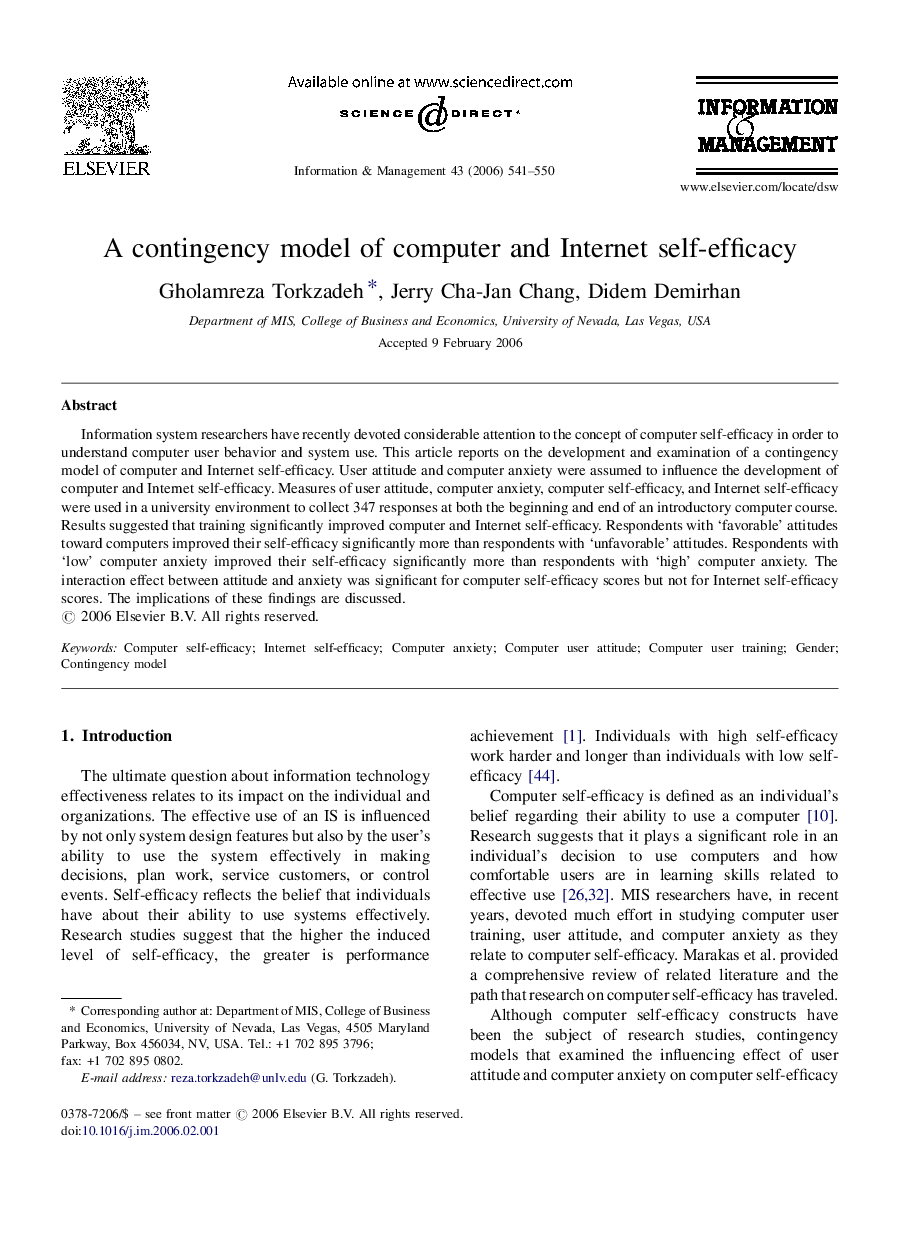| کد مقاله | کد نشریه | سال انتشار | مقاله انگلیسی | نسخه تمام متن |
|---|---|---|---|---|
| 553629 | 873521 | 2006 | 10 صفحه PDF | دانلود رایگان |

Information system researchers have recently devoted considerable attention to the concept of computer self-efficacy in order to understand computer user behavior and system use. This article reports on the development and examination of a contingency model of computer and Internet self-efficacy. User attitude and computer anxiety were assumed to influence the development of computer and Internet self-efficacy. Measures of user attitude, computer anxiety, computer self-efficacy, and Internet self-efficacy were used in a university environment to collect 347 responses at both the beginning and end of an introductory computer course. Results suggested that training significantly improved computer and Internet self-efficacy. Respondents with ‘favorable’ attitudes toward computers improved their self-efficacy significantly more than respondents with ‘unfavorable’ attitudes. Respondents with ‘low’ computer anxiety improved their self-efficacy significantly more than respondents with ‘high’ computer anxiety. The interaction effect between attitude and anxiety was significant for computer self-efficacy scores but not for Internet self-efficacy scores. The implications of these findings are discussed.
Journal: Information & Management - Volume 43, Issue 4, June 2006, Pages 541–550